Interview : “Contempt, Hate Speech Laws Should Be Immediately Implemented”
- Par Kimeng Hilton
- 13 Dec 2024 22:27
- 0 Likes
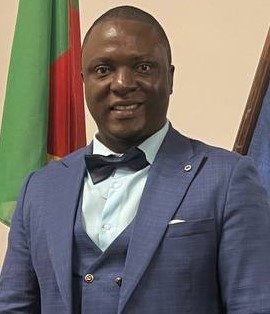
Ngala Desmond Ngala, PhD in Conflict Resolution from the University of Buea. He defended his thesis on Friday, December 13, 2024.
His name has over the past few years in Cameroon become as familiar as the cause he leads. Or rather, crusades for. And so intricate is the connection those who have been keeping an eye on his activities easily make. Between him and what he expends his energy on. Toiling to ensure courteous discourse in social media use in Cameroon. Void of hate, misinformation, disinformation…and all other deliberate attempts to distort the facts. Or create tensions, discord, threaten social cohesion and national unity.
Ngala Desmond Ngala is the Country Project Manager of Defyhatenow Cameroon and the founder of Civic Watch Cameroon - both of them charities. On Friday, December 13, 2024, Ngala Desmond successfully defended a PhD thesis in Conflict Resolution in the University of Buea, Cameroon. On the topic, “New Media as Driver of Hate Speech in Pluralistic States within Sub-Saharan Africa: The Case of Cameroon.” His research focused on addressing hate speech and its role in fostering conflict in society.
A skilled political and humanitarian analyst with over six years of professional experience in research, advocacy, and project management, Dr Ngala Desmond has a passion for peacebuilding and a commitment to combating hate speech. He has become a recognized leader in conflict resolution and humanitarian initiatives in Cameroon and beyond. Ngala holds a Master’s degree in Political Science with specialization in International Relations from the University of Yaounde II, Soa. And a Bachelor’s degree in International Relations from the same institution.
Over the years, he has made significant contributions to various organizations, including Defyhatenow Cameroon, where he has been Country Project Manager since 2019. In this role, he has defined project goals, led initiatives to mitigate hate speech, and collaborated with UNESCO and other stakeholders to promote peace. Additionally, Ngala Desmond has served as a Project Manager for the Binka Development and Cultural Association, championing child protection and education initiatives. And as a Political Analyst for DPC SA, Cameroon, where he produced detailed analyses of Africa’s political landscape.
His commitment to fostering dialogue and understanding extends to his work as a speaker and trainer. He has delivered insightful presentations at prominent events, such as META’s Online Approach to Curbing Violent Extremism, Elections Cameroon’s workshop on hate speech during electoral periods, and UNESCO’s sessions on peacebuilding.
Dr Ngala possesses advanced research and data analysis skills, strong advocacy and communication skills, tested expertise in conflict resolution and peacebuilding. As well as an in-depth knowledge of the African political landscape. In the following interview, Dr Ngala Desmond Ngala talks about his research interest in new media hate speech. Its findings, recommendations and who stands to benefit from the study:
How do feel after successfully defending a PhD thesis in the University of Buea on December 13, 2024 on the topic, "New Media as Driver of Hate Speech in Pluralistic States within Sub-Saharan Africa: The Case of Cameroon"?
I feel an immense sense of relief and accomplishment after years of very hard work and dedication, ending up in the successful defence of my thesis. Tackling the critical issue of hate speech in the context of new media in the specific case of Cameroon has been both challenging and rewarding. I am incredibly proud of the work I have done, and I am grateful for the invaluable support from my advisors, colleagues, family, and friends throughout this journey.
Having renowned professors acknowledge my research has further deepened my pride, as it reinforces the belief that my work contributes to nation-building. This experience has enhanced my understanding of the role new media plays in shaping discourse within pluralistic societies. I hope my findings will foster meaningful discussions and solutions regarding hate speech in Cameroon and beyond.
How long did it take you to defend the thesis?
It took me less than five years to complete the research on hate speech, as gathering accurate data was often quite challenging. However, through patience and dedication, I was able to accomplish the important task.
What, according to you, is the significance of the topic you chose to research on?
The significance of the study lies in its profound exploration of hate speech regulations and mitigation within diverse societies, particularly in the context of Cameroon. At this specific point in time, there is a pressing need to prevent disagreements and conflicts that can arise due to hate speech. This will contribute to harmonious coexistence among various social groups.
The research aimed to provide a comprehensive investigation into hate speech regulation and mitigation, addressing various aspects, ranging from scientific advancement to sociocultural insights and political implications. By so doing, it strove to foster more harmonious coexistence among diverse social groups and offered valuable insights for policymakers, academics, media organizations and the civil society.
What did you set out to discover? And what were the key findings?
Our primary focus was to explore the role of new media in promoting and influencing hate speech within the diverse societal landscape of Cameroon. Specifically, we aimed to understand the extent to which new media serves as a platform for hate speech, assess its impact on inter-communal relationships, and evaluate the effectiveness of existing legal and institutional mechanisms established by the Cameroonian government to regulate the issue.
Our findings revealed a significant concern: a staggering 394 out of 401 respondents indicated that Cameroonian politicians actively utilize hate speech when addressing the public through various media channels, highlighting the pervasive nature of the phenomenon. This overwhelming consensus suggests that new media not only facilitates the spread of hate speech, but also plays a critical role in shaping public discourse in Cameroon.
Furthermore, we found that the dissemination of hate speech through new media has a detrimental effect on inter-communal relationships, fostering division and mistrust among different ethnic groups. Lastly, our evaluation of existing regulatory frameworks indicated that they are largely ineffective in curbing hate speech, emphasizing the urgent need for more robust policies and enforcement mechanisms to address this pressing issue.
What then did you recommend as the possible solutions to the problems identified?
The major recommendations of the study include a call for the immediate implementation of Law N° 2019/020 of 24 December 2019, which amends provisions of Law No. 2016/7 of 12 July 2016, specifically addressing contempt and hate speech. Also, lawmakers should lobby for stronger regulations on hate speech and hold social media companies accountable. This is intended to ensure stricter enforcement against hate speech in Cameroon.
The study also recommends the creation of a clear and comprehensive regulation to effectively address hate speech, particularly within the context of new media. The research lays emphasis on the need for educational initiatives that raise awareness on the risks of hate speech, focused on fostering mutual respect and understanding in a multicultural and pluralistic society like Cameroon.
Similarly, it highlights the need for collaboration between the government, civil society, and the private sector to develop holistic strategies to combat hate speech. While highlighting the need to analyse hate speech in various languages to capture a comprehensive picture.
What were the limitations of your study?
I encountered a number of challenges in carrying out the research. While the study makes a valuable contribution to understanding the role of new media in the proliferation of hate speech, it is also important to acknowledge its limitations. The study is primarily focused on Cameroon. Though it provides valuable insights into the Cameroonian context, the findings may not be directly generalizable to other Sub-Saharan African c...
Cet article complet est réservé aux abonnés
Déjà abonné ? Identifiez-vous >
Accédez en illimité à Cameroon Tribune Digital à partir de 26250 FCFA
Je M'abonne1 minute suffit pour vous abonner à Cameroon Tribune Digital !
- Votre numéro spécial cameroon-tribune en version numérique
- Des encarts
- Des appels d'offres exclusives
- D'avant-première (accès 24h avant la publication)
- Des éditions consultables sur tous supports (smartphone, tablettes, PC)






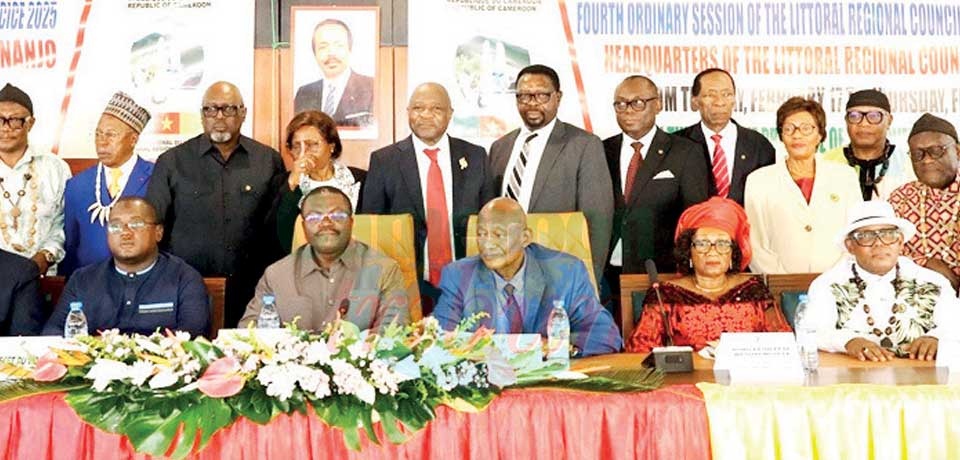
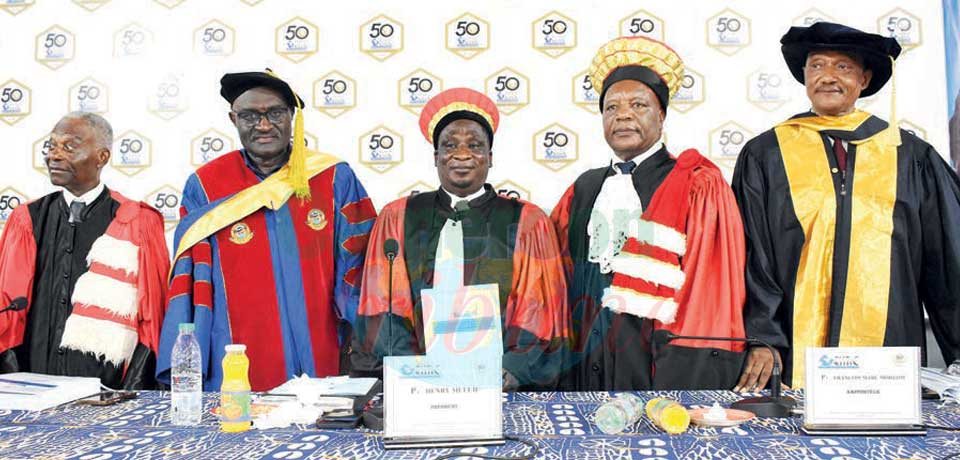
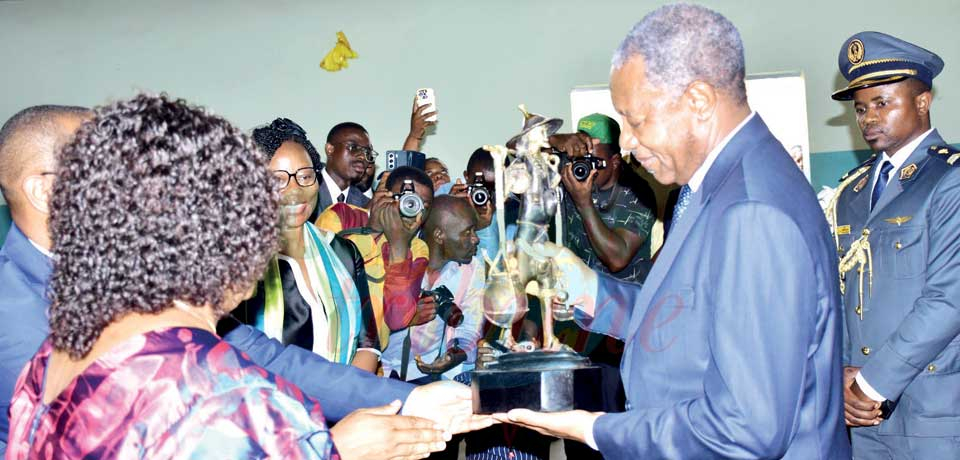
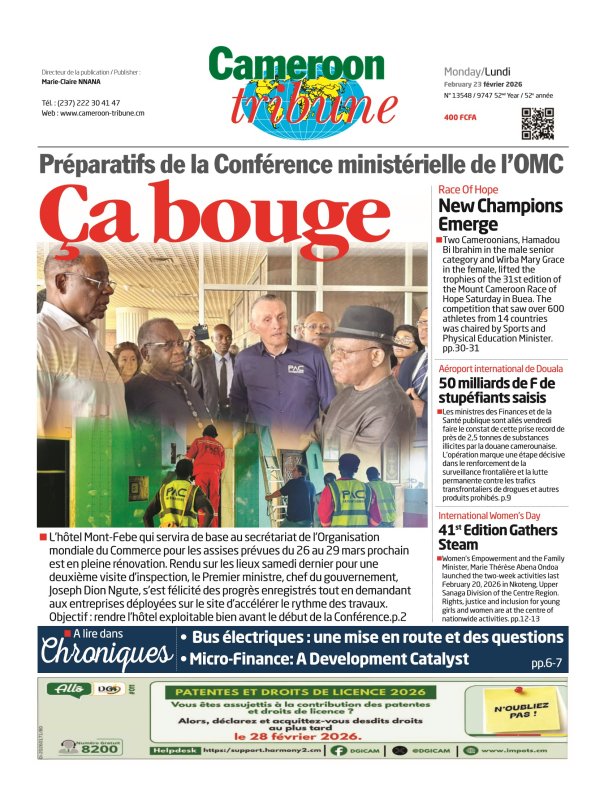




Commentaires